- Home
- Paul Finch
Medi-Evil 3 Page 2
Medi-Evil 3 Read online
Page 2
TO WALK ON THORNY PATHS
All through the December of 1688, it snowed heavily in the English ‘West Country’. A bitter northerly wind blew down from the Welsh mountains, rivers and streams froze, and many of the more isolated roads became impassable. However, none of this prevented the local populace from coming outdoors to celebrate the stately advance of Prince William of Orange, as he and his fifteen-thousand Protestant mercenaries proceeded eastwards from his landing-place at Brixham, in Devon, and later from Exeter to embark on the final leg of his journey to London.
The reign of the Catholic King James II was over. After four years of intrigue, chicanery, ‘popish plotting’, and aggressive absolutism at the very heart of government, the least popular monarch since Bloody Mary had finally abandoned the throne of England. When the news broke on Christmas Eve that James had fled to France, Whig and Tory gentlemen alike left their country residences to join the merry throngs in the snowbound villages. This, it appeared, would be a very happy Christmas indeed.
*
“Not a good night for you, O’Calligan, I dare say,” Lord Chillerton said, dabbing his mouth with a napkin.
Captain O’Calligan shrugged. “I’m merely a soldier, my lord. These great political events pass me by.”
“Well, that’s a novel way to rationalise it,” Lord Lightbourne responded. He was seated directly across the table from O’Calligan, and had been glowering at him since the meal had begun. “If I were you, I’d consider myself lucky that Lady Foxworth is in such forgiving mood.”
“No, no, no, I won’t have that,” Lady Foxworth interrupted in her delightful, sing-song tones. “Captain O’Calligan was always a most gentlemanly gaoler.”
“A gaoler, my dear,” Lady Lightbourne said, “is a gaoler.”
Lady Foxworth waved the business aside as though it was all best forgotten. “And Silvercombe was a most comfortable dungeon.”
There were nods and smiles at this. The assembled guests had no desire to spoil their hostess’s gay mood. If she was inclined to pardon those who had wronged her, who were they to disagree? At present she was as happy as a schoolgirl, as beautiful as a butterfly. An inner-light seemed to shine from her, which, after the uncertain years of James’s reign, they could all now comfortably bask in.
Only Jack O’Calligan had difficulty appreciating it. Thanks to the Arctic conditions outside, it was only a small gathering of Exmoor’s minor nobility at the Silvercombe Hall feast that night, but the tall, good-looking Irishman was uncomfortable all the same. Of Lady Foxworth’s guests, Lord Lightbourne and his wife, Loretta, long-time Whigs, were openly against him, while Lord Chillerton, though a Catholic and a Tory, was past ninety now, and his wife, Lady Barbara, much older, so there was little support to be had there. Even Judge Prendergast, who’d presided alongside Lord-Chief Justice Jeffreys at the Bristol Assizes, was keeping a low if corpulent profile at the far end of the table; he hoped to retain his office on the West Country circuit, and was thus being as obsequious as possible to the incoming administration. In any case, even had O’Calligan been seated among close companions, his position here would have been invidious. Up until the last week or so, as a captain in the King’s Horse Guards, he had been charged with keeping Lady Hannah Foxworth under strict house-arrest. (Three years earlier, her younger brother, Rupert, had taken part in Monmouth’s ill-fated rebellion and had then dashed treasonously overseas to find service with the Dutch navy, which had not reflected well on her in King James’s eyes). Granted, Silvercombe Hall, her ancestral home, had made a luxurious prison, but she hadn’t been permitted to leave it under any circumstances, except for those frequent occasions when she’d been summoned to Court to answer trumped-up charges of seditious libel. Her time had been exceptionally difficult, and O’Calligan was the one who’d enforced it. As such, he had no appetite. The repast that evening was delightful – roasted goose stuffed with cherries, a saddle of pork garnished with apples, and all manner of pies, tarts and puddings – while several excellent clarets had been produced from Lady Foxworth’s famously well-stocked cellar, but it was more than the Irish soldier could do even to sip at his brimming goblet.
“Conciliation will be the order of events in the New Year, Captain O’Calligan,” his prisoner-turned-hostess said, leaning towards him. “You needn’t worry so.”
He glanced sidelong at her. Even at forty-four years old, and two years his senior, she was extraordinarily handsome. Gemstones sparkled on her bosom, but were dull compared to the sapphire lustre of her eyes. Her golden hair, which she wore high and layered in thick curls, shone in the firelight. Her perfume was intoxicating.
“If you’ll excuse me, my lady,” he said, pushing his chair back. “I’ll take some air.”
She smiled and nodded, and watched him as he withdrew from the dining room.
“By God, I’d have my pack on his heels by now if I was you, Hannah,” Lord Lightbourne remarked.
She tittered. “Oh Randolph, you do change with the tides.”
He looked hurt. “I beg your pardon?”
“Come now,” she said. “You weren’t so committed a rebel when the Duke of Monmouth and his army arrived at Lyme Regis. And especially not after the Assizes, when they were all being marched to the gallows.”
At the end of the table, Judge Prendergast gazed awkwardly down at his plate.
Lord Lightbourne was no less discomforted. “In my opinion it was an ill-considered enterprise … with all respect to your family’s involvement.”
“That respect is duly noted,” Lady Foxworth replied, and she smiled teasingly, which caused Lord Lightbourne to fumble with his cutlery, and his wife – who, compared to their hostess, was owlish and plain-looking – to scowl through her powered blusher.
*
Silvercombe Hall was a great rambling structure.
It had originally been constructed during Henry VIII’s reign from local stone, and at the time cast a grim, functional shadow across the bleak wilderness of northern Exmoor. Now, thanks to the Foxworth family’s profitable sea-faring exploits, it boasted parkland and lush, manicured gardens, while its interiors had been paneled throughout in richest oak and hung with portraits and hunting-trophies, and at this time of year, of course, were decked with evergreens.
As he walked down the entrance hall, Captain O’Calligan felt conspicuous in the presence of such grandeur. He hadn’t deemed it appropriate to dress for dinner, and still wore his riding-boots and red regimental coat; knee-length and trimmed with gold at the collar and cuffs, but old and weather-stained. His pistol and sabre hung at his hip, but were purely symbolic now that he had no office to enforce with them. Outside the hall, he found Cedric brushing snow from the porch. Cedric was Lady Foxworth’s oldest retainer, and the senior member of the three household servants she’d been allowed to keep during her period of confinement. Cedric had seen countless years: he was a tall but crooked fellow, with a thin, mournful face and long white hair. Compared to the stockings, wigs and dandified ruffles of his betters, he still preferred the Puritan garb of yore: the dark trousers and doublet with starched white collar spread broadly over the top. Despite this, possibly because of their lowly birth and uncertain status in an ever-changing world, the Catholic Irishman and the Protestant Englishman had become – if not friends – polite acquaintances.
“You’re a long way from home, Captain O’Calligan,” the servant said. “Especially on Christmas Eve.”
“Duty calls, Cedric.”
Cedric eyed him curiously. “Unless I’m mistaken, your duty fled with your lord and master?”
O’Calligan peered across the snowy wastes. An icy wind whipped up flurries of feather-sized flakes. “Until I receive official notification that my post is terminated, I’ll stand my ground for King James.”
“You’re a strange kind of Irishman, and that’s a fact.”
O’Calligan acknowledged this, though as far as he was concerned he’d had good cause to serve the English crown so loy
ally. “You remember me telling you about when I was a child in Drogheda?”
“Aye. That I do.”
“I saw every member of my family slain, Cedric.” O’Calligan’s eyes misted as he recalled the grisly event. “It was Cromwell’s Ironsides, who did it. I was three years old at the time. That’s the only reason I was spared … but I remember it like it was yesterday.” He paused to swallow his emotions. “I learned early that Catholic England’s fight was Catholic Ireland’s fight too. I’ve seen nothing since to change me of that opinion.”
Cedric continued to brush. “Let’s just hope that fight’s finally over, eh?”
O’Calligan agreed. The religious wars had drained too many men of their humanity, but despite his dismay at the recent turn of political events, at least this latest revolution had been bloodless. That had to be a good sign, he thought.
*
It was in the darkest, coldest hour of the night when hellish screams woke the household. The wind blew shrilly all around the ancient building, whistling through its chinks and rafters, but there was no mistaking what could only be cries of unimaginable horror.
Several minutes passed before O’Calligan and Cedric, both of whom arrived on the upper floor of the east wing at the same time, carrying flaming candelabra, were able to locate the source of the sound, which appeared to be the guest-room allocated to Lord Chillerton and his wife. By this time the screams had ceased, and an eerie silence followed. The two men tried to force entry, but the door was locked from the other side. They knocked and shouted, but received no answer. By now, Lord Lightbourne, Lady Foxworth and Judge Prendergast had also appeared, huddled in their caps and bed-robes but white-faced in the early morning chill. Cedric, on the orders of his mistress, went for a hammer and chisel, and they finally broke the door down.
Inside, the once elegant room was more like an abattoir.
Even from the low fire in the grate and a guttering candle on the mantel, it could be seen that blood daubed everything: the bed-hangings, the curtains on the window, the Persian rug. Lord and Lady Chillerton lay like broken mannequins in a heap of bedclothes, their faces frozen rictuses of agony. In each case, a deep and fatal wound had been gouged across the throat.
Lady Foxworth promptly fainted into Cedric’s arms. The other would-be rescuers stood there with stunned disbelief. Numerous items were out of place: a night-stand had been thrown over, its garments scattered; a chamber-pot was broken, its odious contents seeping into the floorboards. Despite that latter, rather foul detail, another stench was in the air – something pungent and carrion-like – though the intruders were too appalled by what they were seeing to even comment upon it. In truth, utter confusion and Bedlam followed. No-one could make sense of the situation.
“Here’s a curious start to your loyalist fight-back!” Lord Lightbourne shouted, rounding on O’Calligan. “Cutting the throats of your own toraidhe companions!”
The Irishman stared at him uncomprehendingly. It was Lady Foxworth, who’d now recovered somewhat, though her pallor was sickly white, who retorted. “Lord Lightbourne!” Her voice quavered with emotion. “I’d appreciate it if you’d refrain from making wild accusations.”
“And I’d appreciate it if you’d put this Irish devil-dog under lock and key!” Again, Lightbourne rounded on the soldier. “Tell me, O’Calligan, isn’t it true that as a young trooper you pursued the brigand Colonel Blood through the Wicklow Mountains, then later through the marshes of the Low Countries? That you also hunted robber bands in Scotland who’d disguised themselves as Covenant rebels?”
O’Calligan said nothing. But it was true; they all knew it.
“Isn’t it also true that you’ve developed something of a talent for clandestine warfare?”
“My experiences served me well,” O’Calligan said.
“So I see!” Lightbourne bellowed. “Throat-cutting must come second nature to you.”
“Randolph, this is your prejudice speaking,” Lady Foxworth chided him.
“Is it, Hannah? So why, pray, is O’Calligan the only one among us dressed?”
And that was true. Everyone, with the exception of Cedric, who was back on duty in an hour anyway, wore nightgowns and slippers. But O’Calligan, though he’d loosened his oil-black hair so that it hung past his shoulders, had only stripped to his shirt and breeches. He even wore his boots.
In actual fact he had spent the night seated by his fire, smoking pipe after pipe as he brooded on his future in a Williamite Britain, but, unused to being questioned, he now remained stubbornly tight-lipped.
“This is absurd, Lightbourne,” Judge Prendergast put in. “Why should O’Calligan murder the Chillertons? They were Catholics and Jacobites, like him.”
“Maybe he viewed them as collaborators,” Lightbourne said. “Maybe he’ll view you the same way.” Lightbourne was a tall, sturdy individual, only in early middle-age but beetle-browed and angry-faced, and he gazed at O’Calligan with fanatical dislike.
Judge Prendergast’s viewpoint was more measured. “Whoever’s responsible, he’ll be punished, but might I suggest we find the miscreant first rather than the nearest convenient scapegoat.”
“And might I suggest we start hunting for him now,” O’Calligan added. He turned to his hostess. “Madam, I no longer have authority here, but it might be a useful thing if we searched these premises. It’s possible some vagrant has broken in, seeking shelter.”
Lady Foxworth’s delicate cheek paled at the mere thought, but she nodded quickly. “Yes, we should search. Of course.”
“Might I also suggest,” O’Calligan said, “that we remove the bodies to one of your outbuildings. How soon we’ll be able to summon help in this weather I don’t know, but if we keep them indoors too long, they’ll start to putrefy. Outside, the cold will preserve them until an enquiry can be made.”
Again Lady Foxworth nodded. “Cedric, assist Captain O’Calligan.”
O’Calligan and the servant wrapped the bodies in sheets, and carried them downstairs. As they did, Cedric voiced a quiet opinion of his own. “If you’ll notice, captain, their throats haven’t been cut. More ripped, I’d say.”
When they reached one of the stables, having ploughed through snow that was now knee-deep and still being driven on a sword-edged wind, O’Calligan saw the same thing for himself. By the light of a lantern, he examined the victims’ throats, and noted that, though the outer flesh and the esophagus tissue beneath had been sliced from one side to the other, the wounds were ragged-edged and zigzagging.
“A hooked blade, maybe?” he said, baffled. “And not especially sharp. Good Lord. Whoever did this, Cedric, is a savage. A real savage.”
*
For the next hour, the men, now coated and booted and armed to the teeth, searched every nook of the great manor house, while the women sat nervously before a rekindled hearth.
It was no small task. As well as its central section and extensive wings, Silvercombe Hall also boasted a number of outhouses. However, no trace was found of an interloper. More to the point, no locks had been forced or windows broken. The search party even ventured out into the landscaped gardens, though this was fruitless for different reasons: the blizzard howled and the snow drifted to such depths that sculptures, arbors and topiary alike were all buried. Eventually they returned indoors, having agreed to meet again in the morning and discuss the affair over breakfast, though throughout this conversation Lord Lightbourne’s eagle-eye was fixed on Jack O’Calligan.
For his own part, O’Calligan had no intention of retiring just yet, and when various bedrooms had been closed and locks thrown, he summoned Cedric back to the murder scene. It was now ice-cold in there and pitch-black, the fire having died, the candle having been removed. Cedric produced a fresh one and lit it, and they stood there warily, their breath swirling vaporously around them.
“The luggage is untouched,” O’Calligan said, nodding to an open cupboard, in the foot of which two heavy portmanteaux could be seen. “Wh
oever did this was not trying to rob them.”
Cedric nodded, then added: “There’s another mystery. How did the villain get in? I checked the window before. It’s fast. Not even tampered with.”
O’Calligan crossed the room to check for himself, but found that the window was indeed securely locked. Beyond its warped panes, he saw a shelf of unbroken snow. No-one had entered by this route. “The only conclusion is that the killer was already in here when they arrived,” he finally said.
“Then how did he get out?” Cedric asked. “The door was locked from the inside.”
They glanced around the room, the walls of which, with the exception of a stone breastwork over the hearth, consisted of solid oaken panels. O’Calligan even glanced up the chimney, but saw a narrow brick shaft not remotely large enough for a human to pass through. He stood back, even more confused. “Cedric, you know the people gathered here very well. Better than I ever could. Did any one of them have reason to hate Lord and Lady Chillerton?”
“None at all. The Chillertons were regarded as goodly neighbours. I mean, they had political differences with Lady Hannah, but isn’t that the way of things all over?”
“Who else is here aside from the guests?”
“Our cook, Agnes, who’s an elderly sort, and two chamber maids, Martha and Charlotte, and they’re bits of girls. Neither could hurt a fly.”
O’Calligan regarded the blood staining the floor and the bed-linen in the corner. “How wealthy were the Chillertons? Did anyone stand to gain from their deaths?”
Cedric regarded him curiously. “Am I to understand, captain, that you’re taking some kind of investigator role here?”
O’Calligan shrugged. “You’ve seen how the land lies. At this moment, I’m a very suitable suspect.”

 Stolen
Stolen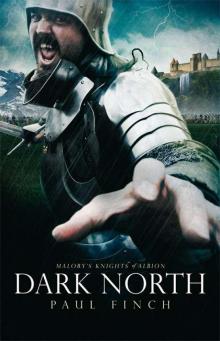 Dark North mkoa-3
Dark North mkoa-3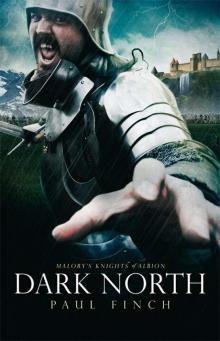 Dark North (Malory's Knights of Albion)
Dark North (Malory's Knights of Albion)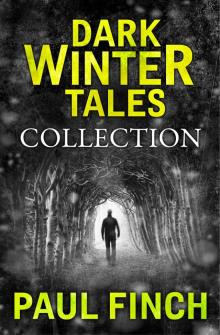 a collection of horror short stories
a collection of horror short stories Sacrifice
Sacrifice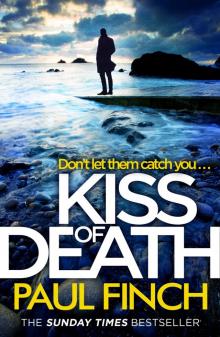 Kiss of Death
Kiss of Death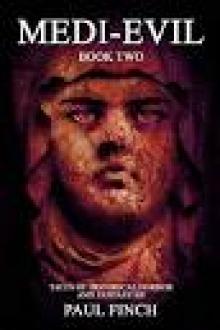 Medi-Evil 2
Medi-Evil 2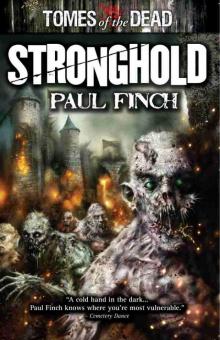 Stronghold
Stronghold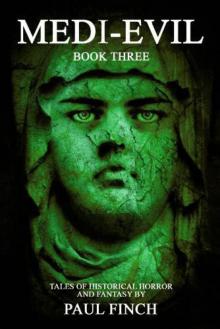 Medi-Evil 3
Medi-Evil 3 Dead Man Walking
Dead Man Walking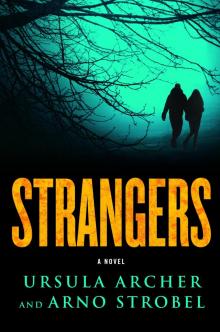 Strangers
Strangers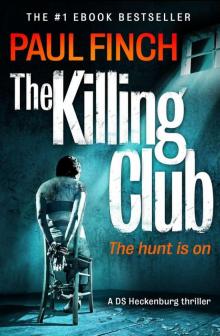 The Killing Club
The Killing Club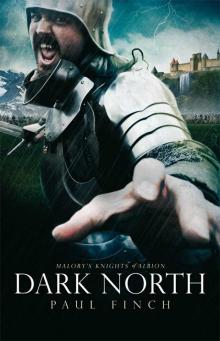 Dark North
Dark North A Wanted Man
A Wanted Man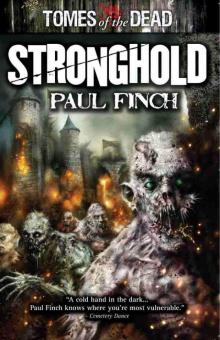 Stronghold (tomes of the dead)
Stronghold (tomes of the dead) Hunted
Hunted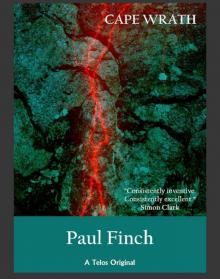 Cape Wrath
Cape Wrath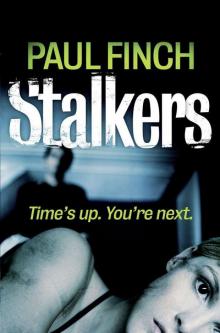 Stalkers
Stalkers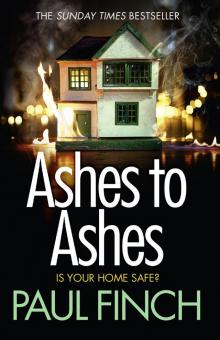 The Burning Man
The Burning Man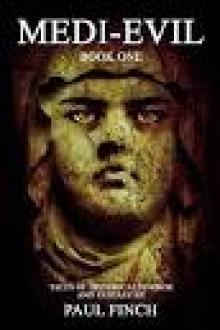 Medi-Evil 1
Medi-Evil 1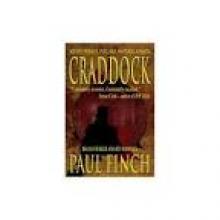 Craddock
Craddock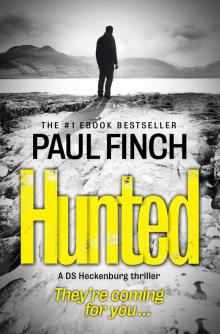 Hunted (Detective Mark Heckenburg Book 5)
Hunted (Detective Mark Heckenburg Book 5)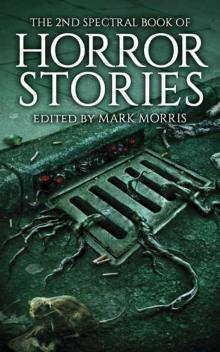 2nd Spectral Book of Horror Stories
2nd Spectral Book of Horror Stories The Chase
The Chase